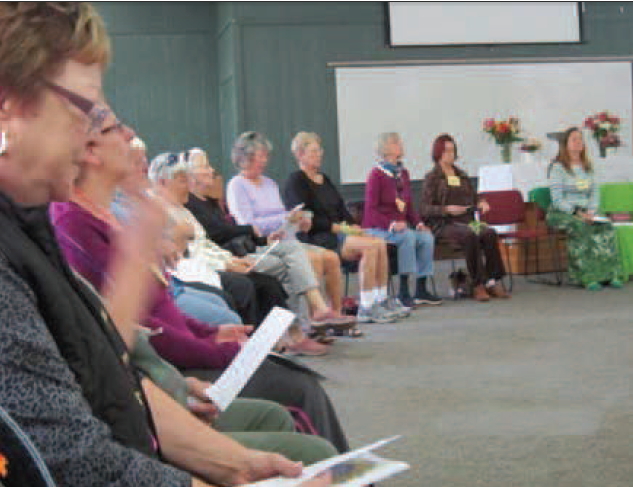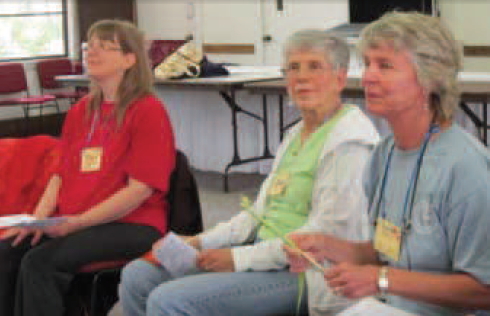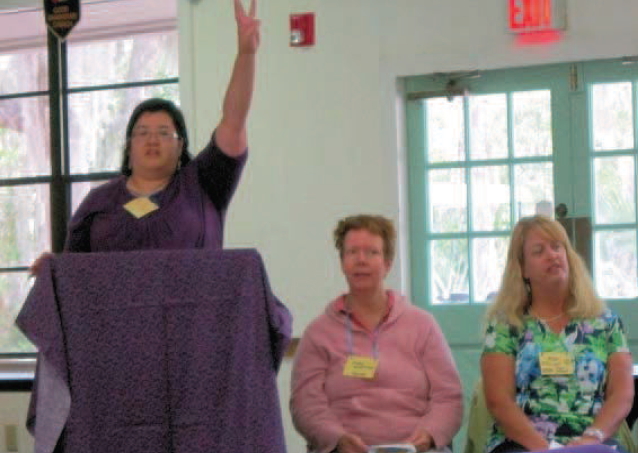- Try to talk with as many participants individually as you can. Sit with different people at meals. Learn names. Listen. Above all, don't hang out with your co-facilitator exclusively or your own old friends. It's worth it to keep newcomers from thinking there is an in-group and they're not part of it.
- When the whole group is meeting together in one circle, if possible, don't sit next to your co-facilitator. If the two of you have to talk loudly enough to hear each other across the room, you will be more sure everybody else can hear too.
- When small groups are meeting, see if you and your co-facilitator can each be part of a separate group. Above all, try not to exclude yourselves from the group, or in any way give the impression that you are watching rather than participating.
- Watch out for those who try to monopolize discussion. If you are leading the discussion, try to make sure everyone who wants to speak gets a chance. Avoid letting the discussion turn into a dialogue between you and someone who has responded to your comments.
- Try to meet privately with your co-facilitator for a few minutes of "debriefing" after each session. Give each other support and suggestions. Consider what you have observed so far about the group. How is the pacing? What needs fine-tuning or adjusting?













